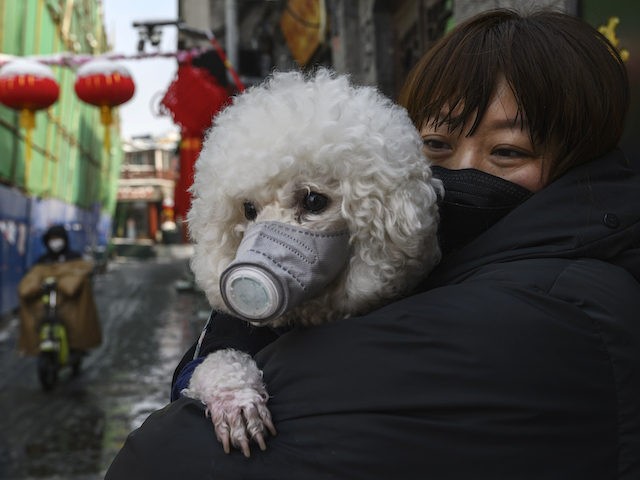Moscow approved the “world’s first” Chinese coronavirus vaccine for pets, Russia’s federal veterinary service Rosselkhoznadzor said on Wednesday.
“Carnivak-Cov, a sorbate inactivated vaccine against the coronavirus infection (COVID-19) for carnivorous animals, developed by Rosselkhoznadzor’s Federal Center for Animal Health, has been registered in Russia. So far, it is the world’s first and only product for preventing COVID-19 [Chinese coronavirus] in animals,” Rosselkhoznadzor deputy head Konstantin Savenkov told reporters on March 30.
Clinical trials for Carnivak-Cov began in October, according to Savenkov. The studies involved dogs, cats, foxes, minks, Arctic foxes, and other animals.
“The outcome of the research gives us grounds to conclude that the vaccine is safe and has strong immunogenic effect, because all vaccinated animals developed coronavirus antibodies in 100 percent of cases,” Savenkov said, adding that mass production of Carnivak-Cov could begin as early as April.
Carnivak-Cov is believed to impart immunity against the Chinese coronavirus to animals for up to six months, though research into its long-term effectiveness remains ongoing.
“Russian scientists believe that the vaccine’s use can prevent the virus from mutating, which most often occurs during interspecies transmission,” Rosselkhoznadzor said in a statement on Wednesday.
“As COVID-19 [Chinese coronavirus] cases are registered in animals in many countries worldwide, purchases of the Federal Center for Animal Health’s vaccine [Carnivak-Cov], are planned by domestic animal-breeding enterprises and commercial firms from Greece, Poland, and Austria,” Savenkov said on Wednesday. “Companies from the United States, Canada, and Singapore have also demonstrated interest in Carnivak-Cov.”
While different types of animals around the world have tested positive for the Chinese coronavirus over the past year, “at this time, there is no evidence that animals play a significant role in spreading SARS-CoV-2, the virus that causes COVID-19 [Chinese coronavirus], to people,” the U.S. Centers for Disease Control and Prevention (CDC) reported on March 25. “Based on the available information to date, the risk of animals spreading COVID-19 [Chinese coronavirus] to people is considered to be low.”
The government of Denmark ordered the extermination of its entire farmed mink population – roughly 17 million – last fall after detecting a mutated strain of the Chinese coronavirus on some of its mink farms with the potential to spread from animals to humans. Denmark health authorities confirmed at least five cases of the new strain had infected a dozen people in the country by early November.
Denmark Prime Minister Mette Frederiksen held a press conference on November 4 to announce the mass culling. She cited a Danish government report stating that the mutated virus strain had been found to weaken the human body’s ability to form coronavirus antibodies. This could potentially render the current coronavirus vaccines under development for humans ineffective, she said.
“We have a great responsibility towards our own population, but with the mutation that has now been found, we have an even greater responsibility for the rest of the world as well,” Frederiksen told reporters.
“Currently, there is no evidence that mink are playing a significant role in the spread of SARS-CoV-2 to people. However, there is a possibility of mink spreading SARS-CoV-2 to people on mink farms. Mink to human spread of SARS-CoV-2 has been reported in the Netherlands, Denmark, and Poland, and new data suggest it might have occurred in the United States,” the CDC noted on March 25.

COMMENTS
Please let us know if you're having issues with commenting.